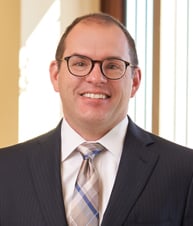A weekly summary of the precedential patent-related opinions issued by the Court of Appeals for the Federal Circuit and the opinions designated precedential or informative by the Patent Trial and Appeal Board.
International Business Machines Corp. v. Zillow Group, Inc., et al., No. 2021-2350 (Fed. Cir. (W.D. Wash.) Oct. 17, 2022). Opinion by Hughes, joined by Reyna. Opinion dissenting in part by Stoll.
IBM sued Zillow for infringement of seven patents related to graphical display technology. Zillow filed a motion for judgment on the pleadings under Rule 12, arguing that the claims of four of IBM’s asserted patents were patent ineligible under § 101. The district court granted the motion as to two of the patents, concluding that both are “directed to abstract ideas, contain no inventive concept, and fail to recite patentable subject matter.” IBM appealed.
The Federal Circuit affirmed, agreeing with the district court that “the patents are directed to abstract ideas and lack an inventive concept.” Under step one of the Alice framework, the Federal Circuit stated that the patents describe required functions or operations “without explaining how to accomplish any of the tasks,” and without sufficiently describing how to achieve the results in a non-abstract way. The court held that “such functional claim language, without more, is insufficient for patentability under our law.”
Under step two of Alice, the Federal Circuit stated that, when addressing a Rule 12 motion, a court “need not accept a patent owner’s conclusory allegations of inventiveness.” Instead, “only plausible and specific factual allegations that aspects of the claims are inventive are sufficient.” And here, “IBM has not made plausible and specific allegations that any aspect of the claims is inventive.” The claims use functional terms that “simply describe the abstract method without providing anything more.”
Judge Stoll dissented in part. Judge Stoll would have reversed the district court’s judgment of patent ineligibility as to two claims in one of the patents. In her view, the district court should have accepted as true the plausible factual allegations in IBM’s complaint and accompanying expert declaration, which together established that these claims are “directed to a technical improvement in how a user interacts with a computer via the graphical user interface, not an abstract idea.”
Nature Simulation Systems Inc. v. Autodesk, Inc., No. 2020-2257 (Fed. Cir. (N.D. Cal.) Oct. 17, 2022). Opinion by Newman, joined by Lourie. Dissenting opinion by Dyk.
Editor’s Note: Following a petition for rehearing by Autodesk, the Federal Circuit modified its prior opinion. Among other changes, the modified opinion omits the court’s earlier statement that “actions by PTO examiners are entitled to appropriate deference as official agency actions, for the examiners are deemed to be experienced in the relevant technology as well as the statutory requirements for patentability.” A summary of the modified opinion follows.
NSS sued Autodesk for infringement of two patents related to methods of packaging computer-aided data for three-dimensional objects. The district court held a claim construction hearing and ruled that the asserted claims are invalid for indefiniteness under § 112(b). The court premised its ruling on the notion that a claim term is indefinite as a matter of law if there are any “unanswered questions” about the term. NSS appealed.
The Federal Circuit reversed, concluding “that the district court erred on the legal standard for claim indefiniteness, and that on the correct standard the claims are not indefinite.” The Federal Circuit summarized key aspects of the statute and the Supreme Court’s Nautilus decision, explaining that the claims “must provide reasonable certainty in defining what is patented” when “viewed and understood in the context of the specification and the prosecution history.” The district court erred by applying an incorrect “unanswered questions” test for indefiniteness.
The Federal Circuit additionally faulted the district court’s analysis. The district court had “declined to consider information in the specification that was not included in the claims” and gave “no weight to the prosecution history showing the resolution of indefiniteness by [the examiner’s] adding [certain] designated technologic limitations to the claims.” The district court did not even address the examiner’s amendment. The Federal Circuit thus reversed, holding that indefiniteness was not established as a matter of law.
Judge Dyk dissented because, in his view, “the asserted claims are invalid because they are indefinite.” According to Judge Dyk, the district court, “in a detailed and thorough analysis,” read the claims “in light of the specification to determine if [they] would inform those skilled in the art about the scope of the invention with reasonable certainty, which is exactly what is required under Nautilus.” Judge Dyk disagreed with the majority’s reliance on the prosecution history. He stated that “the majority does not identify anything in the prosecution history, whether statements by the applicant or by the examiner, that would illuminate the meaning” of the claim language at issue.

